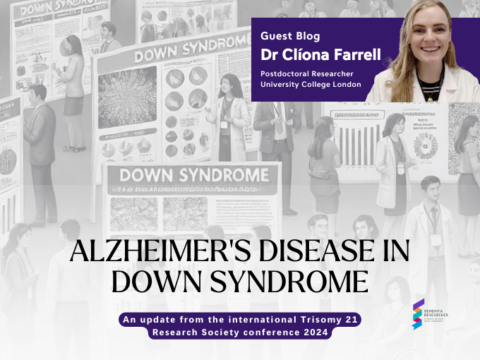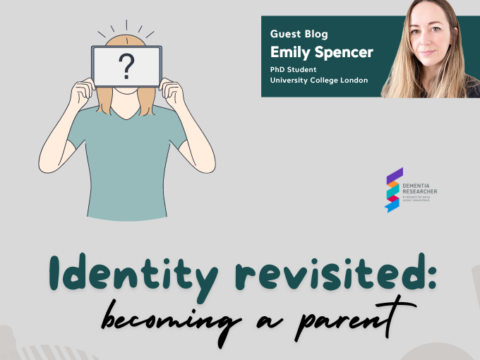
The recent rise of anti-vaxxers and flat-earthers is indicative of the general public’s growing distrust of the scientific community. As a result, there is rising demand for scientists to step up and take the lead on communicating their own research to the public.
But effective science communication is no easy task. As scientists, we tend to lose touch with nontechnical modes of communication the farther we progress in our education and career. I’m sure most of us can relate to being asked what we study at an informal gathering and watching our friends’ eyes glaze over before we’ve even finished our first sentence. It’s easy to shrug this
experience off and assume that non-scientists aren’t smart enough or interested enough to understand our research. In reality though, the fault isn’t theirs for not understanding, but ours for not
communicating in an understandable manner.
During my undergraduate career, I experienced this dilemma countless times, especially after I started researching Alzheimer’s disease. Various types of dementia are common in my family, so at reunions my relatives would often ask me what exactly I was studying in my lab. They’d ask me questions about something they’d read online, like the claim that coconut oil cures Alzheimer’s, and want to know if it was true. They were clearly interested, and yet to my frustration (and probably theirs as well), my jargon-filled explanations couldn’t hold their attention for more than a few seconds.
The turning point came when I started my science blog, AlzScience. It was meant to be a fun little experiment, just something to do in my spare time and keep my writing skills sharp. Today, nearly two years after starting AlzScience, my blog has become a huge part of my life and has impacted my career in ways I could never have predicted. Most importantly, I’ve gained invaluable insight into how to explain my science in more interesting and understandable ways. In my experience, there are two common misconceptions that prevent many otherwise-interested people from engaging in science communication.

The first is that classic case of academic self-doubt, which leads us to believe that we’re not smart enough or accomplished enough to tackle science communication. That day when I posted my first blog article, I was about to start my third year of undergraduate education. I’m willing to bet that many of you wouldn’t consider an undergraduate student with no formal training in scientific communication properly qualified to write a science blog. At the time, that’s what I believed too. I tried to make it completely transparent that the blog was written by a student rather than an “expert,” and cautioned against using it for any medical advice. From the moment I hit the “publish” button, I worried that senior scientists would berate me for attempting to do something that I considered so far above my education level.
While it’s true that an undergraduate or even a graduate student is far from having the knowledge and experience of a tenured professor, this does not disqualify us from being good science communicators. You may be a small fry in your own specific field, but compared to the general public or even to scientists in other disciplines, you’re effectively an expert in your own research topic. Any first-year neuroscience student could tell you what a neuron is and how it works, yet the average adult probably hasn’t cracked open a biology textbook in years. To be clear, this is certainly not to say that we’re smarter than the rest of the world; rather, we’re simply more educated in our own narrow field of research than practically anyone else in the general public. As a result, each of us is more than qualified to explain these types of concepts to a lay audience.
The second misconception I often see is that science communication is a waste of time. With grants and tenure being awarded based almost exclusively on one’s achievements within academia, it’s understandable that many scientists don’t think they can spare the time to communicate with the public. However, I would argue that science communication is still a vital tool for advancing one’s career. In my own experience, writing for my own science blog has landed me several paid gigs as a freelance science writer. Not only did these jobs help to supplement my meager income during school, but they also exposed me to many invaluable connections both within and outside of academia. These connections can be especially useful for students and early-career researchers when they enter the job market. In my case, my articles have sparked conversations with at least a dozen academic researchers in my field, in addition to just as many non-academics in various industry sectors. The positive effect of my blog on growing my network is well worth the effort it takes to write an article every week.
 If blogging isn’t your thing, there are also lots of other avenues you can use to get involved with science communication. Twitter has proven to be a great way for me to talk about science and connect with others in my field. The character limit forces you to be clear and concise, which is a skill not commonly taught in academia. If you prefer speaking to writing, you could also try your hand with YouTube or podcasts. Participating in an interview on one of these outlets (or starting your own, if you’re particularly ambitious!) is a great way to gain exposure for your research.
If blogging isn’t your thing, there are also lots of other avenues you can use to get involved with science communication. Twitter has proven to be a great way for me to talk about science and connect with others in my field. The character limit forces you to be clear and concise, which is a skill not commonly taught in academia. If you prefer speaking to writing, you could also try your hand with YouTube or podcasts. Participating in an interview on one of these outlets (or starting your own, if you’re particularly ambitious!) is a great way to gain exposure for your research.
I hope that by now I’ve convinced you of the benefits of science communication. Starting your own science blog, or participating in other types of SciComm, teaches you useful communication skills that will better prepare you for your career, while also establishing your internet presence and helping to forge invaluable connections with people around the world. And maybe the next time your grandma asks what you study in the lab, you might actually be able to explain it to her!
Author
Maya Gosztyla is a Post-Baccalaureate IRTA Fellow at the National Center for Advancing Translational Sciences, National Institutes of Health, United States working on Assay development for Niemann-Pick Disease (aka “Childhood Alzheimer’s”)
You can follow Maya on Twitter Follow @alzscience

 Print This Post
Print This Post




